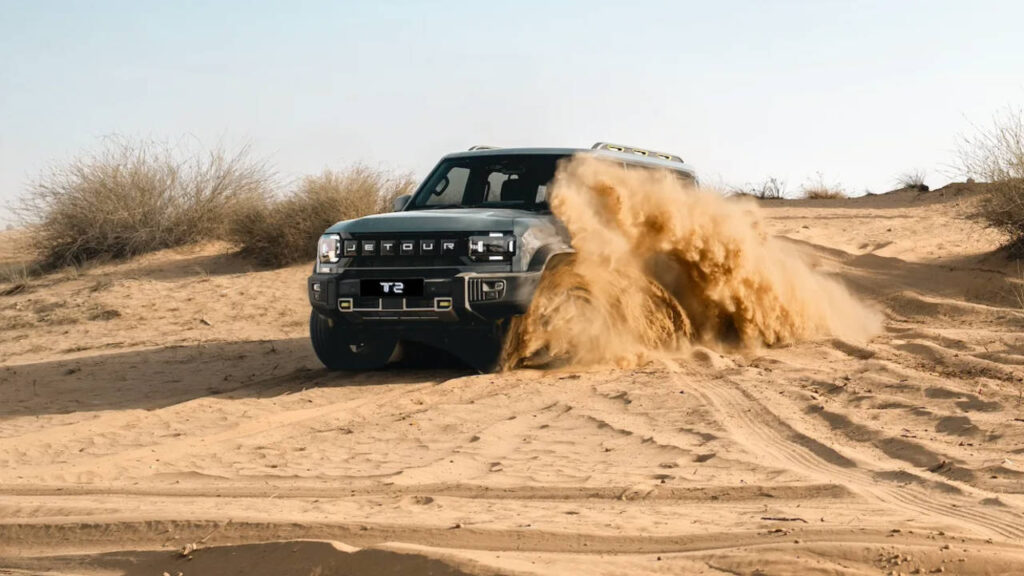The Gulf Cooperation Council (GCC) countries are famous for their intense summer heat, where outdoor temperatures often soar past 50°C. In such conditions, it’s natural for car owners to wonder: can vehicles actually melt in this extreme climate? While complete melting is impossible, the heat does take a heavy toll on cars, affecting tyres, batteries, interiors, and more. Understanding these effects is vital for keeping your vehicle safe and reliable on the road.

AI Quick Summary
Cars in the Gulf Cooperation Council (GCC) won’t melt despite extreme summer temperatures, as their melting point is far higher than even the hottest days. However, the intense heat can damage various car components, including tires, batteries, interiors, and fluids, impacting performance and longevity. Therefore, regular maintenance and preventative measures like parking in shade and using sunshades are essential to protect vehicles from heat damage.
This summary was generated by AI using this article’s content.
Read Next
Can Cars Really Melt in GCC Summers?
Cars are built using materials like steel, aluminium, and heat-resistant plastics. Steel melts at around 1,370°C, aluminium at 660°C, and most automotive plastics at 200°C+. The highest outdoor temperatures in the GCC reach 50–55°C, far below melting points.
So, while your car won’t melt, certain parts can warp, crack, or fail under extreme heat.
What Car Parts Are Most Affected by GCC Heat?
1. Tyres
- Tyres are most vulnerable.
- Hot roads can reach 70°C, causing tyre blowouts if pressure isn’t checked.
- If your car’s tyres are three years or older in age, replacing them is suggested.
2. Battery
- Heat shortens battery life.
- Electrolyte fluid can evaporate, leading to starting issues.
- Heat also impacts electric vehicles differently. If you drive an EV, check out our detailed guide on EV batteries in Dubai summer heat.
3. Paint and Interiors
- UV rays fade paint and crack dashboards.
- Leather seats can dry out without protection.
4. Fluids
- Engine oil, brake fluid, and coolant thin out faster in heat.
- This reduces their effectiveness and can cause overheating.
5. Plastic & Rubber Components
- Rubber seals, hoses, and plastic trims can warp or crack.
How to Protect Your Car from Heat Damage?

- Regularly check tyre pressure – especially before long drives.
- Park in shaded areas or use sunshades to protect interiors.
- Wax and ceramic coating can protect paint from UV rays.
- Top up coolant and engine oil more frequently.
- Service your battery and ensure proper fluid levels.
- Being prepared can make a big difference during summer drives. Here’s a list of the Top 10 things to keep in your car in summer.
Can Fuel Be Affected by Heat?
Yes, petrol evaporates faster in extreme heat, especially if the tank isn’t sealed properly. Always ensure the cap is tightly closed to avoid wastage and risk.
Do Modern Cars Have Heat Protection Features?
Many modern cars sold in the GCC are equipped with:
- Stronger air conditioning systems
- UV-protective glass
- Heat-resistant battery designs
- Advanced cooling systems
Cars designed for the GCC often include stronger cooling systems and UV protection, unlike imported American-spec vehicles that may lack these features. Learn more in our guide on American-specs vs GCC-specs.
Cars in the GCC will not melt in summer, but heat can severely impact performance and longevity. Regular maintenance and preventive measures are key to keeping your car reliable under extreme conditions.
Find the best used cars for sale in the UAE.
Stay tuned to UAE’s most popular auto blog for more information about the latest happenings in all of the Emirates.
FAQs
Can a car actually melt in the GCC heat?
No, cars cannot melt. Materials like steel and aluminium melt at hundreds of degrees higher. However, extreme heat can damage tyres, batteries, interiors, and fluids.
How hot can car interiors get in GCC summers?
Car interiors can reach 70°C or more if parked under direct sunlight. This can crack dashboards, fade upholstery, and make the cabin unsafe without proper sunshades or tinting.
What car parts fail most often in extreme GCC heat?
Tyres, batteries, rubber seals, hoses, and plastics are most affected. Fluids like engine oil and coolant also thin out quickly, reducing efficiency and causing overheating risks.
How can I protect my car during GCC summer?
Park in shade, use sunshades, check tyre pressure, top up fluids, and service the battery. Wax and ceramic coatings also help protect paint and interiors.
Does fuel evaporate in high heat?
Yes, petrol evaporates faster in extreme heat if the tank is not sealed properly. Always keep the fuel cap tight to prevent wastage and potential safety risks.
The Gulf Cooperation Council (GCC) countries are famous for their intense summer heat, where outdoor temperatures often soar past 50°C. In such conditions, it’s natural for car owners to wonder: can vehicles actually melt in this extreme climate? While complete





